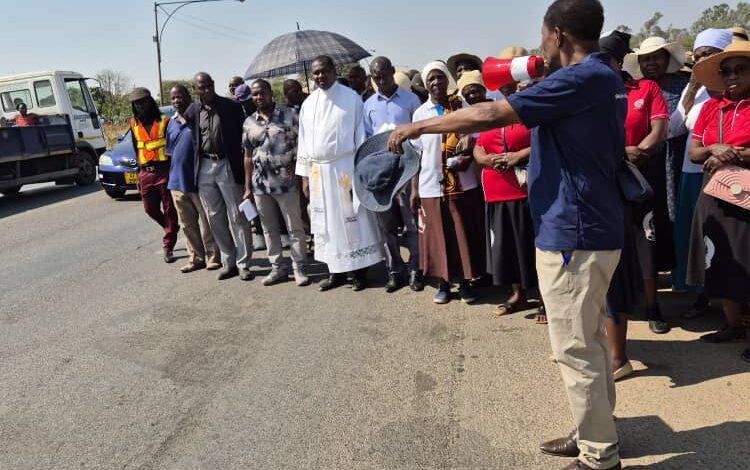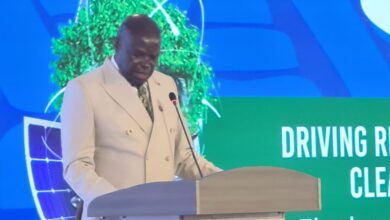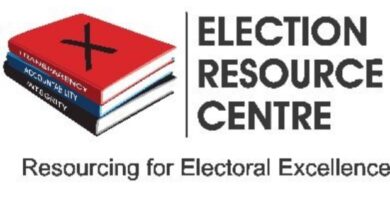Tshabalala Residents Hold Prayer March For Road Safety

Loraine Phiri
The Tshabalala Residents Association (TRA) yesterday led a peaceful march and community prayer calling for urgent road safety measures along a section of Nketa Drive in Bulawayo that residents say has become a deadly hotspot.
The march, which began at the robots near the Tshabalala Filling Station, attracted a significant turnout. Participants included local residents, the Ward 21 councillor, and representatives from 12 churches, among them the Anglican Church, Roman Catholic Church, Lutheran, Victory Fellowship, UCCSA, House of Fire, Alliance, and Methodist. Representatives from Khaya Arts, Tshabalala-Sizinda Old School, BUPRA, and the local business community also joined the event.
In an interview, Tshabalala Residents Association chairman Albert Ndlovu said the gathering was prompted by growing concerns over frequent accidents along the stretch of road between the traffic lights near the Tshabalala Filling Station and the railway crossing on Nketa Drive.
“As the residents of Tshabalala, we are very much concerned about a spot which is between the robots next to Tshabalala Filling Station and the railway crossing line on Nketa Drive. This portion has become a dangerous spot that has claimed a lot of lives within a short space of time,” he said.
He appealed to the Bulawayo City Council (BCC) to take immediate action to make the area safer. “Be it reckless driving or what, we would like the Bulawayo City Council to put a bigger scope on this spot to protect innocent lives.”
Ndlovu highlighted the road’s heavy traffic, noting that pedestrians, including school children and workers, frequently cross between Tshabalala and Sizinda townships. He urged the council to implement immediate safety measures.
“There is urgent need for the council to put up safety measures to slow down traffic on this portion of the road like operational robots, speed humps and a zebra crossing to reduce accidents. We hope that our grave concerns are going to be addressed at the earliest convenience,” said Ndlovu.
Tshabalala residents hope their calls for intervention will be acted upon swiftly to prevent further loss of life.




